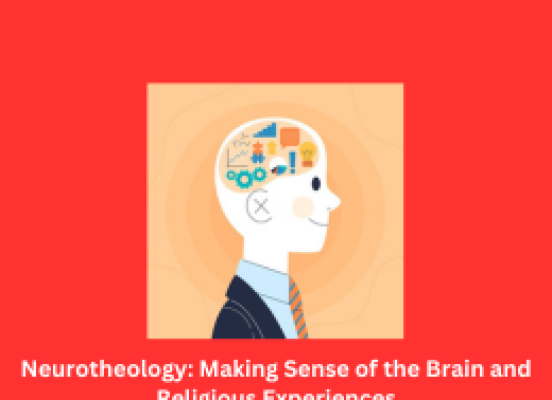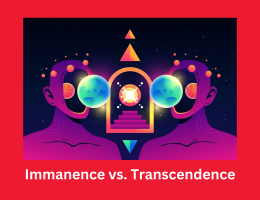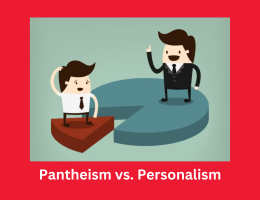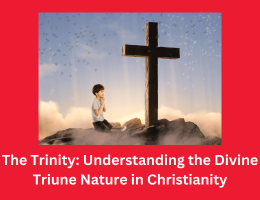
Neurotheology: Making Sense of the Brain and Religious Experiences
- By admin --
- Friday, 24 May, 2024
Since I changed into a kid, I were asking questions about reality. I couldn’t recognize why humans had one of a kind religious, political, and moral beliefs while we all stay inside the identical world. This interest led me on a lifelong journey to apprehend how human beings shape their ideas about fact.
I commenced searching on the human brain, but soon found out that really expertise medical factors of our experience become now not sufficient. So I started to explore philosophical and spiritual avenues. Eventually, all my looking got here collectively in a area frequently called neurotheology.
Through this lens of neurotheology, I’ve been reading the brains of spiritual people for many years. I actually have performed brain scans on praying Franciscan nuns, meditating Buddhist priests, and chanting Sikhs. These scans have given me a wonderful window into how spiritual practices have an effect on and form the human brain. They have additionally given me a profound appreciation for the special ways we perceive fact around us.
What is Neurotheology?
Neurotheology is an interdisciplinary subject that combines neuroscience and theology. It explores the relationship between the brain and religious reports. This rising subject of take a look at has gained tremendous interest in latest years in each the medical and religious groups. And it has struck a nerve (pun intended) inside the broader popular media with articles in many prominent television, print, and on line outlets.
Neurotheology isn't always just a scientific evaluation of religion, nor is it only a spiritual evaluation of science; it is each. Second, it is important to recognize that each sides of neurotheology have to be considered broadly. The “neuro” aspect ought to include neuroscience, neuroimaging, psychology, medicinal drug, recognition research, and every other techniques that explore the organic components of who we are. The “theology” side need to consist of theology itself, however also the ideals, practices, and stories that get at the non secular a part of who we're.
A Brief History of Neurotheology
The examine of the connection between the brain and religion may be traced lower back lots of years. The early non secular texts in maximum major traditions had to combine an knowledge of the human man or woman and the human mind with ideas which includes God, typical consciousness, and remaining reality. The more latest exploration of neurotheology began approximately hundred years ago with the work of William James. In 1902, his e-book “The Varieties of Religious Experience,” described religious reviews as “verifiable reports of God” that have a profound impact on the person. James proposed that these reviews are real and have a biological foundation. However, it wasn’t till the latter half of of the 20 th century that neuroscientists started to discover how the brain connects to non secular reviews.
The Future of Neurotheology
Neurotheology is a distinctly new subject, and there's plenty studies that also desires to be executed. In the coming years it will likely be essential to expand operating definitions of hard phrases which includes thoughts, consciousness, mind, soul, spirit, religion, spirituality, and mysticism. Studying non secular and religious reviews is complicated considering that those are private experiences that could happen at any time. So, it's going to additionally be important to consider questions like: How have to these subjects be addressed from a mixture of clinical and non secular views? How does one take a brain test of mystical stories? There are methods of getting at this at present, however it isn't clean.
One region of destiny research is the observe of the effect of spiritual experiences at the brain over the years. These research could help us higher recognize the long-time period results of non secular practices at the brain. Another location of destiny studies is calling at religious stories and brain problems. Religious studies may be suffering from mind problems together with temporal lobe epilepsy, schizophrenia, or Parkinson’s ailment. On the alternative hand, non secular and religious practices is probably beneficial in assisting human beings control those conditions. Finally, destiny research could assist us higher apprehend the character of focus itself. Religious experiences may provide specific insights into the nature of recognition. They might also shed mild at the elaborate courting among the brain and the thoughts.
Neurotheology is an exciting area of study that has the ability to deepen our information of the relationship between the mind and non secular stories. There is still plenty studies that needs to be carried out. Current studies in neurotheology has supplied valuable insights into the biological basis of non secular stories and the effect of spiritual practices at the brain. As the sector maintains to develop, future research should cause new discoveries and a better knowledge of the function of faith in human existence.





